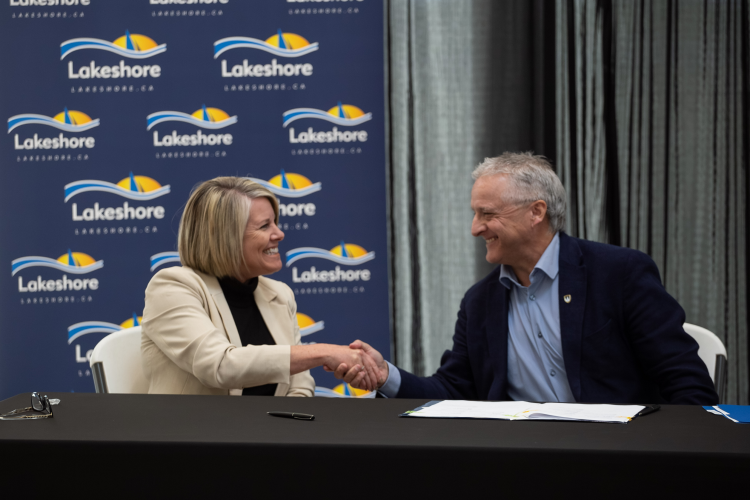A new partnership between the University of Windsor and the Municipality of Lakeshore is set to spark innovation, modernize and improve local planning processes, increase housing, and expand opportunities for students, businesses, and residents.

The two organizations formally signed a Memorandum of Understanding (MOU) today (May 20) at the Atlas Tube Recreation Centre, establishing a collaborative framework to advance research partnerships, experiential learning, and community engagement.
"This agreement marks an exciting step forward in our commitment to fostering innovation, education, and community impact," said Dr. Robert Gordon, President and Vice-Chancellor of the University of Windsor. "By partnering with the Municipality of Lakeshore, we are building new pathways for research collaboration, student learning, and regional development. Supported by our Centre for Cities, Office of Experiential Learning, and dedicated researchers, we will drive meaningful change and create opportunities that benefit both our students and the broader Lakeshore community."
The MOU outlines a wide-ranging scope of collaboration, including faculty and student engagement, research partnerships supported by national funding programs, community-based projects, student placements, and innovation initiatives through UWindsor's Centre for Cities. Future joint initiatives may address critical areas such as housing development, environmental sustainability, and economic growth, leveraging the strengths of both partners to drive meaningful impact.
"This partnership is an incredible opportunity to bring the energy, talent, and expertise of the University of Windsor into our communities," said Tracey Bailey, Mayor of Lakeshore. "While the initial focus will be on our housing initiatives, I look forward to seeing this partnership grow in the spirit of collaboration and public service."
The MOU is effective for five years and provides a framework for developing specific project agreements, each designed to strengthen research, innovation, and experiential learning. It also lays the groundwork for knowledge-sharing activities, joint workshops, community engagement initiatives, and access to expertise and resources from both institutions.















